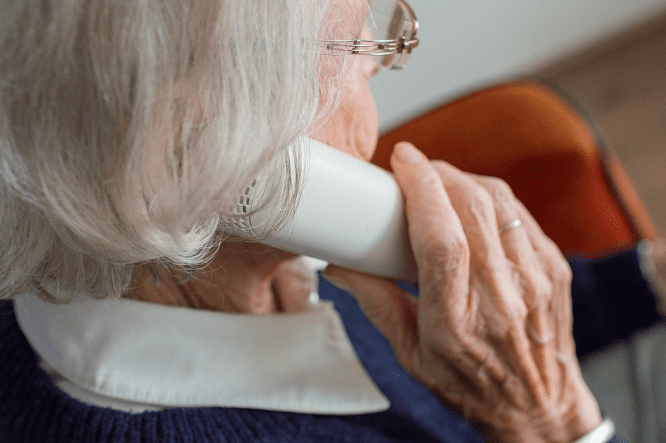The American age demographic is changing rapidly. If you check these statistics revealed by MorningStar, you’ll learn that by the year 2019, 52% of citizens aged 65 years and above will need some kind of assistance. Further, long-term care for the elderly can extend for more than 5 years with around 34.2 million Americans providing care to their parents and other relatives. Young adults must balance a career, sometimes multiple jobs, and a family with small kids along with responsibilities toward aged family members. And, that can become very challenging.
Thankfully, science has now developed personal trackers that can offer valuable help to both the elderly and their caregivers. The folks at GoFindInc. talk about how simple gadgets can be used to perform a range of functions once they’re integrated with smartphone apps. If you’re a caregiver, you’ll find that such devices make your life so much better while at the same time, give your parents or other relatives independence and the freedom to live life on their own terms.

How Personal Trackers Work
Personal tracking devices are now available in the form of a trendy wristwatch-like gadget that anyone would love to wear. These sleek machines are powered by a battery that lasts for at least 7 days or more. You can either recharge or swap out the device when you’re visiting. Some trackers also send you a notification when the battery is running low so you can check and take the necessary steps. Elderly members can wear the band at all times even when they’re showering since it is waterproof. In case of an emergency, the device automatically sends a alert text message to up to 4 numbers that you can program. The screen on the wristband displays essential information in large font so that even seniors with a failing eyesight can read without any problem.
-
Managing Elderly Having Dementia and Alzheimer’s Disease
Research shows that more Americans now develop Alzheimer’s dementia than before. Between the years from 2000 to 2015, cases of the disease have risen by 123%. Like this feature on the Hofstra University explains, such patients also suffer from paranoia, depression, and anxiety. During memory lapses, it is not uncommon for aged people to wander off on their own and then, forget their names and where they live. Having personal trackers can help you keep track of where your parents are at all times. In case Mom and Dad leave home without informing you first, you’ll know that there’s a problem and they need help. Even if your parents are independent most of the time, knowing where they are in case of an emergency will make you feel so much better.

-
Providing Care from a Remote Location
As people age, getting confused and forgetful about regular routines happens all the time. For instance, you may find that your parents forget to eat or take their medicines on time. Personal trackers can be programed with audio messages that play back at fixed times during the day. You can record the messages using your voice so elderly relatives have a familiar person guiding them. Add reminders for taking meals and specific medicines at different times. Or, gently nudge Mom to take a walk around the house or say, put out food for the cat or dog if she has one.
-
Monitoring Activity or Inactivity
Modern-age personal trackers are so advanced that they connect with Amazon Alexa or Google Smart Speakers by way of two-way communication systems. If Mom or Dad are leaving home to visit the grocery store or take a stroll around the park, they can send you an instant message or text. And, at any time, if you think Dad hasn’t moved for a while (and, it isn’t his naptime), you can communicate with him and make sure he’s alright. The gadget can also detect falls and send you an alert if the senior has fallen and cannot get back up. In such situations, you can send an alert to emergency services and have them check on the aged parent if you cannot get there in time. Of course, the device can also be used to call for help. Program the gadget to respond to the “Help!” call or show your parents how to hit the SOS or panic button if they need help instantly.

-
Communicating and Interacting
As age progresses, many seniors lose their partners or go through medical problems that can make it harder for them to move around. When you cannot be with them as often as you would like, talking to your parents can help lift their spirits and keep away the sense of isolation and loneliness. Given the rising costs of assisted living and having help round the clock, it may seem more economical to allow your parents to live in their homes. But as statistics released on the Forbes magazine show, less than 8% of seniors have long-term care insurance. You can help out as much as possible by using the interactive features of the personal trackers or hands-free apps to call often and check on your loved ones.
-
Maintaining Independence
Around 90% of seniors prefer to live in the homes where they’ve spent their entire lives. As a responsible child, it is understandable that the situation worries you. But, with personal trackers it is now possible for your parents to stay independent and for you to make sure that they’re okay at all times.
Invest in one of these gadgets and you’ll find that fulfilling responsibilities is so much easier. You can stay connected with your loved ones and they can get in touch instantly when they need help. If you belong to the “sandwich generation” that works full time AND cares for young kids of your own and the seniors in the family, personal tracking devices can make it possible to balance all your roles much more efficiently






